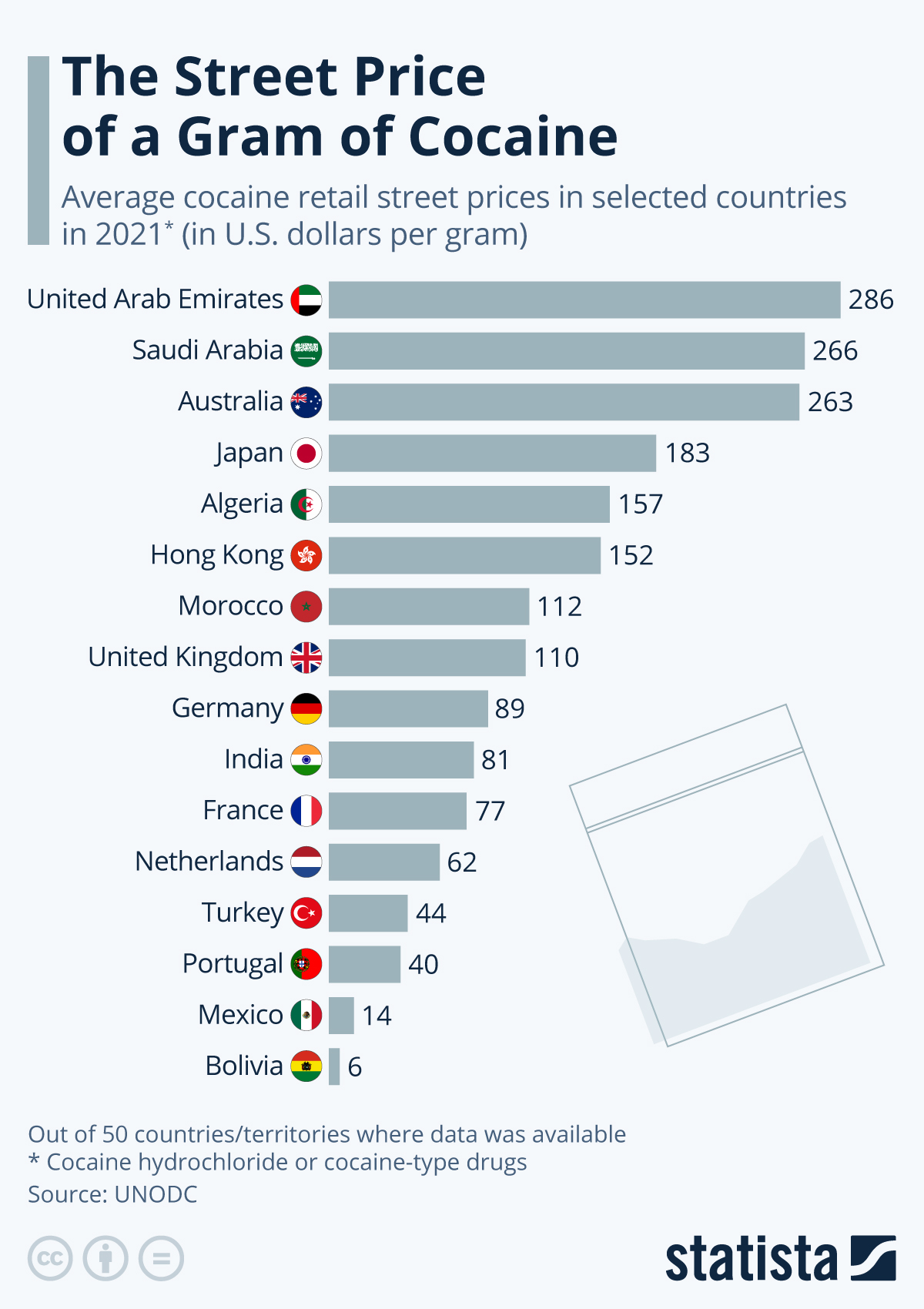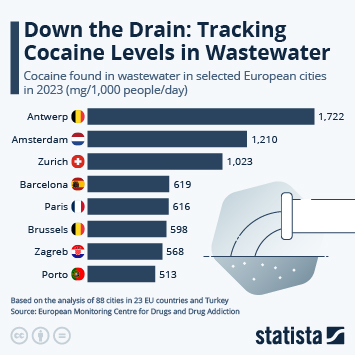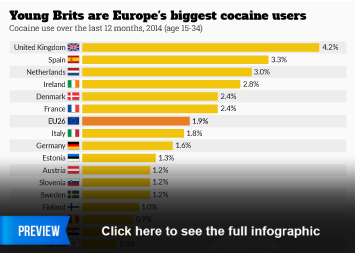According to the latest edition of the United Nations World Drug Report, 296 million people used illegal drugs in the last year, while around 22 million of them used cocaine. The use of the drug has risen in the past decade, according to the report, but slowed somewhat in the Covid-19 pandemic. With global cocaine production reaching new highs, cocaine supply chains to Europe have been diversifying, which is driving prices down and pushing quality up, potentially increasing the level of harm caused by use of the drug in the region. Still, the prices for the drug have gone up compared to 2020.
In the United Kingdom, for example, cocaine prices fell from the equivalent of $178 to $110 between 2019 and 2021. The country continues to have a high cocaine retail street price in a global comparison, however, with prices lower in most European countries. In developed economies outside of Europe, a higher premium is usually charged for cocaine, like in Hong Kong ($152 per gram), Japan ($183 per gram) or Australia ($263 per gram). For the United States, no 2021 numbers were reported, but in 2020, the price for a gram of cocaine stood at $120 per gram. While prices in Arab countries, which have strict laws forbidding drug use and trade, spiked in 2020, they have recently dropped to levels comparable to the aforementioned Australia or New Zealand.
A gram of cocaine can be found for a fraction of its price on the Persian Gulf in some parts of Europe, such as in the Netherlands and Portugal where UNODC states it has a retail street price of $62 and $40 per gram, respectively. The later country has recently radically decriminalized the use of even class A drugs. India was included in the report for the second time this year. In 2021, the price of cocaine was set at an average $81 per gram, an increase of $14 compared to the previous year. While this is rather low by international standards, attainability is likely lower than in Europe due to the differences in purchasing power in the country.














